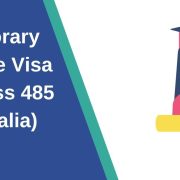Pearson Language Tests are used to evaluate the English proficiency of non-native speakers, and these tests are recognized by universities, colleges, and employers worldwide. If you plan to take a Pearson Language Test, it is essential to prepare well in advance. Here are some of the tips and strategies to help you succeed:
Important Tips & Strategies to Get Success in Pearson Language Tests
1. Know the PTE Format
The first step in preparing for a Pearson Language Test is to familiarize yourself with the test format. Each test has a unique format and structure; knowing the format can help you prepare more effectively. You can find detailed information about the test format on the Pearson website or in study materials.
2. Develop Your Language Skills
To succeed in a Pearson Language Test, you need to have a strong command of the English language. The best way to develop your language skills is to practice reading, writing, listening, and speaking regularly. Reading newspapers, books, and online articles can improve your reading skills.
Writing skills can be developed by practicing writing essays and reports. Listening skills can be improved by listening to English audiobooks, podcasts, and news broadcasts. Finally, speaking skills can be improved by practicing with a native speaker or taking online language courses.
3. Use Practice Tests
Taking practice tests is a great way to prepare for Pearson Language Tests. Practice tests help you become familiar with the test format and questions and give you an idea of your strengths and weaknesses. You can find a range of practice tests online or in study materials and use the official practice tests provided by Pearson.
4. Manage Your Time Effectively
Time management is crucial in any exam, and PTE is no exception. Make sure you know the allotted time for each test section and plan accordingly. If you invest much time in a particular section, move on and return to it later. Also, ensure you have enough time to review your answers before submitting your test.
5. Learn Test-Taking Strategies
In addition to developing your language skills, learning test-taking strategies can help you improve your performance in a Pearson Language Test. Some valuable strategies include reading the questions carefully, eliminating incorrect answer choices, and guessing if you need more clarification. You can find more test-taking strategies online or in study materials.
6. Stay Calm and Confident
Finally, it is crucial to stay calm and confident during the test. Test anxiety can affect your performance, so get enough rest the night before and arrive at the test center with plenty of time to spare. Remember to take deep breaths and stay positive throughout the test.
To improve your vocabulary for Pearson Language Tests, follow the below-mentioned tips and strategies you can use:
Other Tips and Strategies for PTE Preparation & Practice
1. Read extensively: Read books, articles, and other materials in English to expose yourself to new words and phrases. Please pay attention to the context in which the words are used to understand their meaning.
2. Use a dictionary: Look up new words in a dictionary and note their meanings, synonyms, and antonyms. Practice using them in sentences to reinforce your understanding.
3. Practice with flashcards: Create flashcards with new words and their definitions, and practice reviewing them regularly. This can help you memorize new vocabulary.
4. Watch and listen to English media: Watch movies and TV shows, and listen to podcasts in English to hear new words and phrases in context.
5. Use vocabulary-building apps: There are some applications available w that can help you improves your English vocabulary.
6. Improving your vocabulary: Takes time and effort, and it is important to PTE Practice Test regularly. Using these strategies consistently increases your vocabulary and improves your performance on Pearson Language Tests.
In conclusion, preparing for a Pearson Language Test requires a combination of language skills development, test-taking strategies, and time management. These tips and strategies can increase your chances of success and help you achieve your language proficiency goals.










Comments